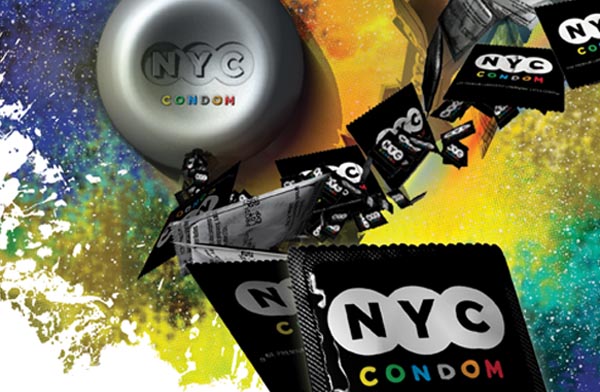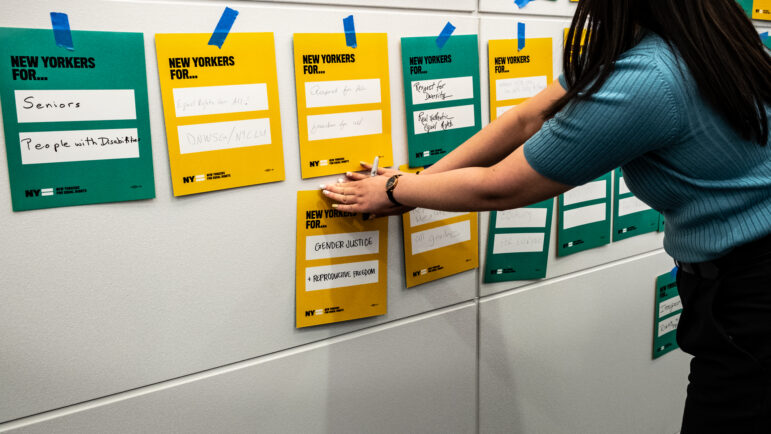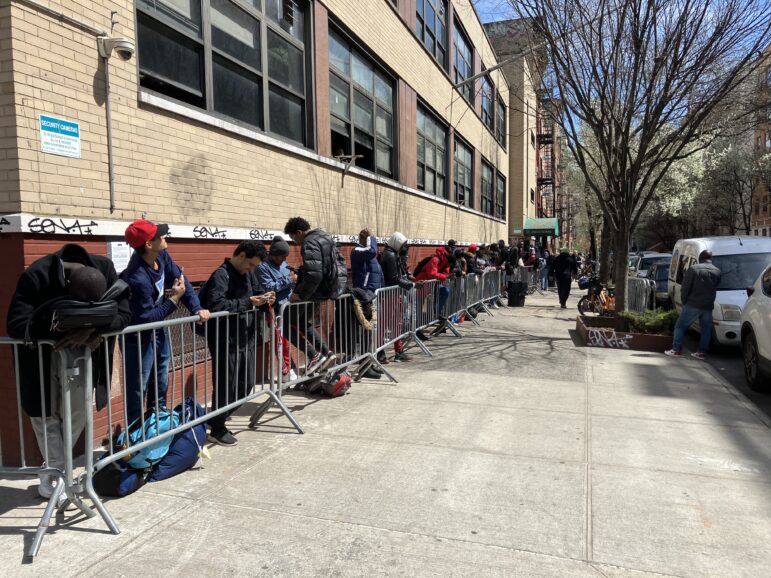
Photo by: NYC.gov
The PSAs and this promotional poster for NYC condoms are part of a broader campaign to bolster condom use.
It’s one of parents’ biggest fears. A teenage son or daughter succumbs to peer pressure, making a life-altering decision simply to fit in with a group. Implicit in this fear is parents’ acknowledgement that teens have a uniquely powerful influence over one another.
Research supports what most of us know from experience: messages have a higher likelihood of getting through – and changing attitudes and behaviors – when recipients believe that the messengers are similar to themselves. This phenomenon is especially prevalent among teens, whose still-developing brains respond strongly to social rewards.
While many fear the effects of peer influence on teens, others see it as a tool that, when harnessed properly, can be used for positive outcomes. That’s the philosophy behind the peer education programs of Community Healthcare Network’s Teens P.A.C.T. (Positive Actions and Choices for Teens). Peer education is based on the premise that young people are more likely to change their behavior if peers they like and trust advocate change. To be effective, it requires careful understanding of the context in which young people live.
Teens P.A.C.T. trains selected “Peer Leaders” in communication and community action project development, and educates them about relationships, STIs and contraceptives. After eight weeks of training, they are entrusted with the task of empowering young New Yorkers to make healthy life choices. As part of this mission, Teens P.A.C.T. launched “More Than Just Sex,” a unique initiative in which Peer Leaders write, direct, produce and act in a series of PSAs that address sexuality, teen pregnancy, prevention of STIs and HIV and unhealthy relationships.
Click here to view the “More Than Just Sex” PSAs.
Designed to grab the attention of inner-city youths by reflecting their realities, the PSAs shed light on truths that some adults find concerning. In particular, some have criticized the words that the teens use to discuss sex. Such critics either don’t realize how teens talk today, or don’t understand the importance of using true-to-life language to get through to young people.
The beauty of the PSAs is that they combine language and situations teens can relate to, with scientifically proven tactics of persuasion. The program used to guide the Peer Leaders, MyMediaLife, teaches the basics of behavior science, reducing complex theories into easy-to-understand concepts. All the youth who go through the program are required to develop their videos with these in mind.
The PSA that received the most critique, titled “The Importance of Condoms,” was based on a sound Behavioral Science Theory called the Health Belief Model. The theory says that a person’s readiness to change their health behavior is based on the perceived threat and the net benefits of the change. Allowing young people to weigh the pros and cons of condoms, and ultimately consider the severe consequences of not using them, makes them more likely to adopt the optimal health behavior. What’s more, it promotes critical thinking and empowers teens to make important decisions for themselves.
The Theory of Reasoned Action informs another one of the PSAs in an effort to alter subjective norms surrounding HIV testing, and to modify viewers’ attitudes about testing by linking it to other things they value. The Social Learning Theory asserts that people are more likely to adopt a behavior if they are aware of the potential outcomes and associate those outcomes with things they value. The HIV testing video depicts things that teens struggle with and reminds them that pushing through their fears is more often than not, well worth it.
Community Healthcare Network serves some of New York City’s poorest neighborhoods, where high STI and pregnancy rates have a devastating cost on individuals and communities. Traditional methods of teaching youth about sexual health aren’t doing a good enough job of penetrating the psyche of adolescents in these communities. “More Than Just Sex” is a carefully considered initiative, backed by science, to use the power of peer influence for positive outcomes.
It’s no surprise that teens respond positively to the videos.








